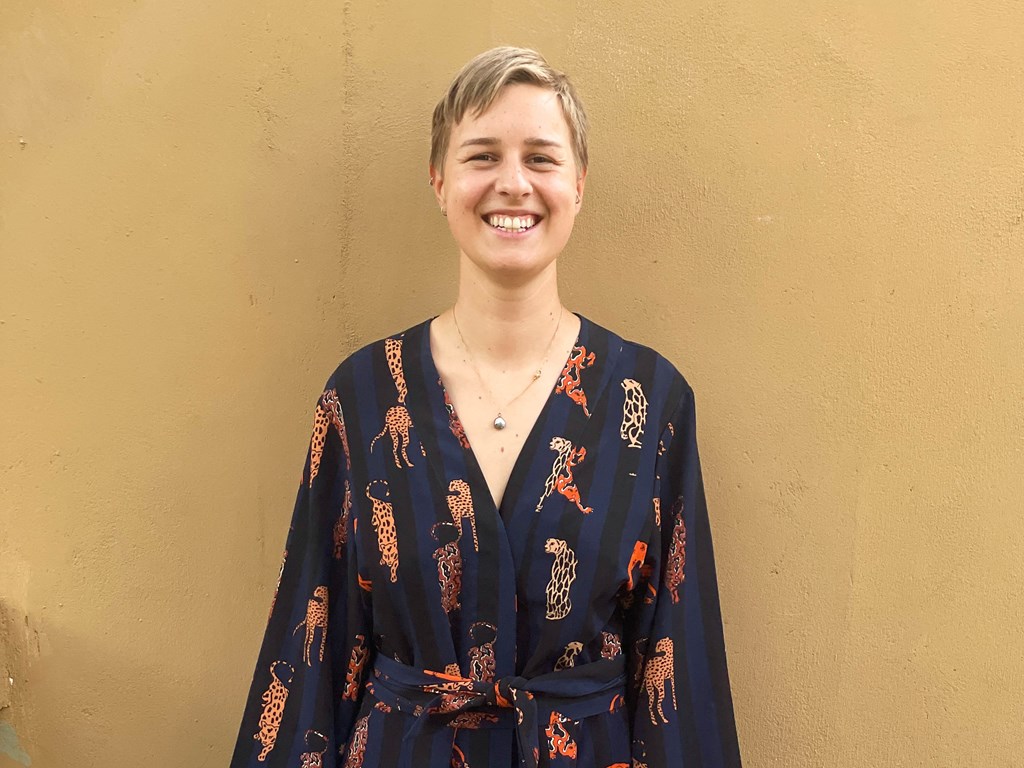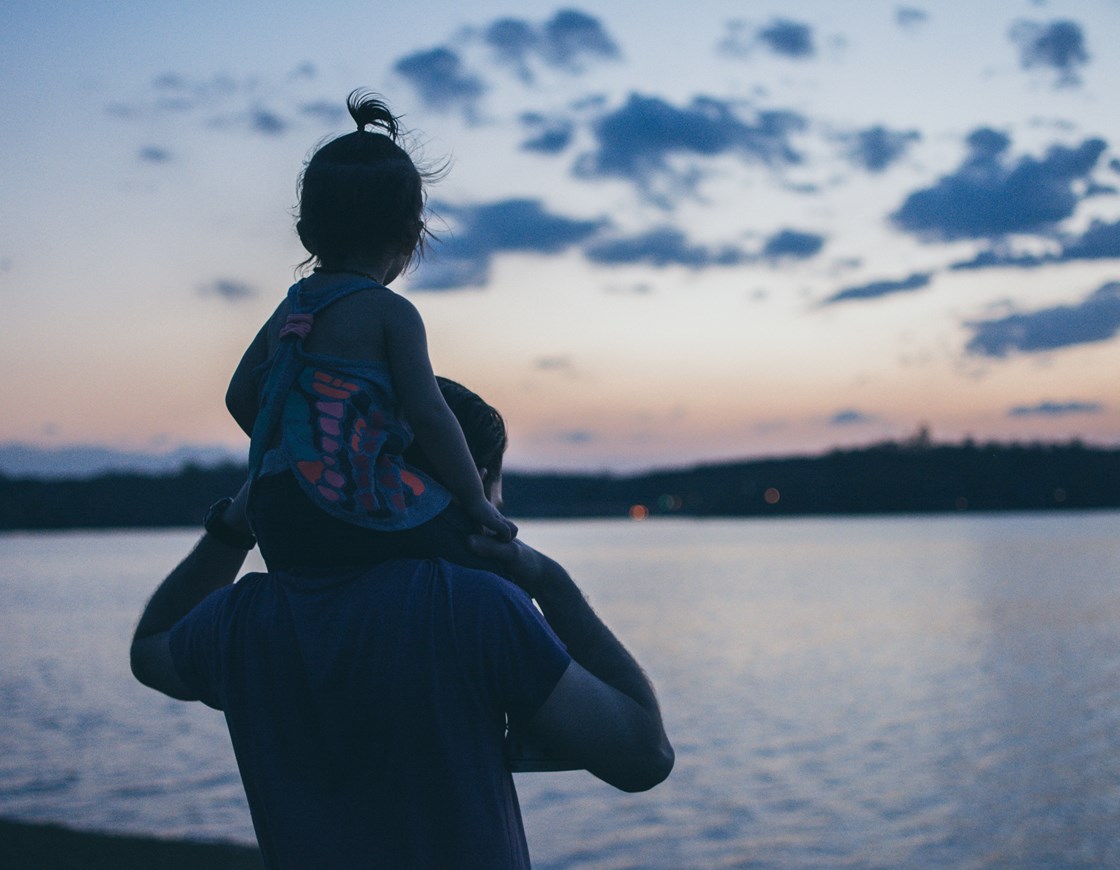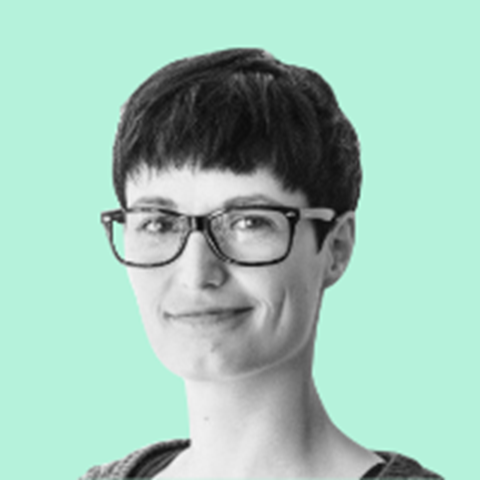Donor child: “I don’t need a relationship with my sperm donor”
Dina Winther Hansen has always known that she was donor-conceived. "The fact that I am a donor child is an important but small part of me."

“People often ask me what happened the day I found out that I was a donor child. But there has never been “the day”. The fact that I am a donor child has always been a part of my story and has never been a secret. For as long as I can remember, my parents have told me that they had help in having me and my sister. You could say that it was a limited story with a continuous flow of information. Later on, I put the pieces together,” 23-year-old Dina Winther Hansen says over an internet connection from Oman, where she is studying for a semester as part of her Arabic and Islamic studies at Aarhus University:
“It was part of a natural story about the conditions of how my sister and I came into the world.”
What does it mean "to get help"?
Dina grew up in a suburb of Aarhus, Denmark's second largest city, in a typical nuclear family in a residential area with her mother, father and her 4 years younger sister. Her parents, and especially Dina’s mother, often brought up the subject when they spoke about Dina's birth, her mother’s pregnancy and so on. Always with the same explanation and openness: “We went to a fertility clinic and had help.”
The closest thing to a crucial moment in her story as a donor child was one day in the backyard when she was about 8 years old. As the sisters were getting older, their curiosity grew as well. What did it mean to have “had help”?
The fact that I am a donor child is an important but small part of me, a matter of fact, but not something that I have attributed a lot of value to. It does not define my life.
“It is not a clear memory, but I remember the feeling very well. It was like having something explained to you over and over, then suddenly, I understood the small but very important part of the big picture. Kind of like having solved a complicated mathematical equation. The last pieces fell into place that day when my mother told me that they had used a sperm donor. It is the first time I can remember that she mentioned it concretely,” Dina says.
She says that she felt neither anger nor relief. More like a neutral sense of well-being. The girls did not really understand what it meant, and their new knowledge did not have a big impact on life in the family.
A number on a piece of paper
Dina told her friends at school the news. Their reaction was: “So your dad is not your real dad?”
“I did not understand the question at all. It was so abstract for me. Of course, he was my real father. And imagine if my father thought that he wasn’t our real father. That was a big fear for me.”

Her classmates also asked about the sperm donor. Could he be Italian? Her friends thought that Dina’s temper seemed more Mediterranean than Danish. So she went home and asked her parents what they really knew about the man who had donated sperm. They couldn’t give Dina a lot of information, but they did know that he was not Italian. Dina's parents had chosen a donor with the same hair and eye colour and height as them. That, along with the name of the clinic, is practically the only information they have. Unlike today, it wasn't possible to choose an open donor in the 1990s when Dina's mother was inseminated. Legislation is completely different to then, and donor children can now be informed about the sperm donor’s profile, regardless of whether he chose to be an open or non-contact donor.
“My donor is a number on a piece of paper and completely anonymous to me. And that is fine. I don’t have a need for a relationship. There is so much that means more to us as a family. Being a donor child is not something that takes up my every day and is not something I have to process”, Dina says.
Half-sisters but sisters
Dina and her sister are like night and day. Dina is dark blonde, her sister is more light-skinned. People have always wondered about them being sisters.
“Later on, I asked if my sister and I had the same donor. The answer was no. The fact that my sister suddenly became my half-sister was a big thing. It challenges the general perception of family, but for me it doesn’t change the fact that we ARE sisters.”
Dina’s parents, who later divorced, met each other when they were 29 and 31 years old. It wasn’t until late in their relationship that they decided to have children. And her father knew that his fertility was not at its peak. When they later made the decision to use a sperm donor, they did not think about reserving donor sperm for a future sibling. That is why Dina and her sister are not fully genetically related.
In return, Dina's parents made it a precondition for their decision that they would be open about their choice to use a sperm donor. That openness should also apply to the children, and that is why they have told them since day one.
I have confidence that my parents gave us information in the doses and at the times when we could take it in, depending on our ages. That trust is absolutely crucial to how I feel about being a donor child today.
”The fact that I am a donor child is an important but small part of me, a matter of fact, but not something that I have attributed a lot of value to. It does not define my life. On the contrary, the operative word for our story has been openness. I know that I can always go home and have all my questions answered. It also means something that my sister and I have been in the same boat,” says Dina, who, in the past, has given presentations to European Sperm Bank about being a donor child.
My parents have shaped me
Being a donor child is the opposite of taboo for Dina. Her experience is that the more she talks about it, the more understanding she and others get.
“When I think about my donor... I can’t imagine a face. A man who once needed more or someone who sincerely wanted to help others have children. Meeting him is hypothetical, but my approach would be like meeting any other human being. However, it would be exciting to hear about his considerations and whether, over the years, he has thought about the children he has helped bring into the world. He wouldn’t mean more to me than that, and he has never been talked about as being my father. I HAVE a father, and that means everything. He is the one who has always been there for me, and it is my parents who have shaped me as a person,” Dina underscores.
Is there anything about your story that you wish had been handled differently?
“No. I have confidence that my parents gave us information in the doses and at the times when we could take it in, depending on our ages. That trust is absolutely crucial to how I feel about being a donor child today. It would have been so transgressive to find out for the first time as an 18-year-old.”
 Helle Tyllesen
Helle Tyllesen